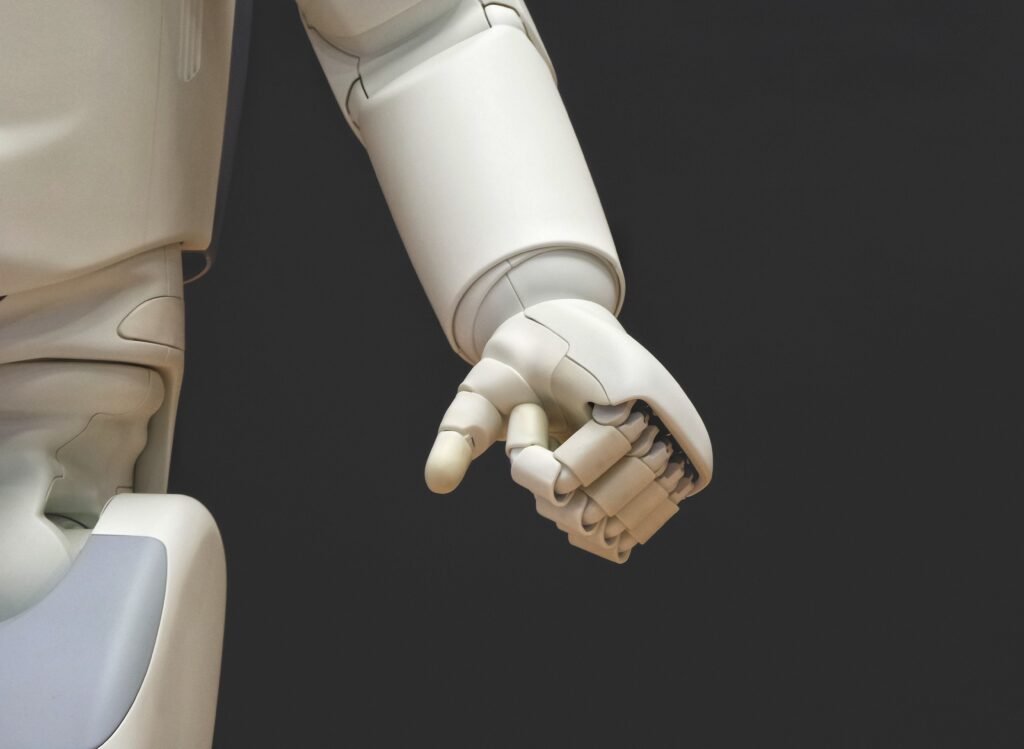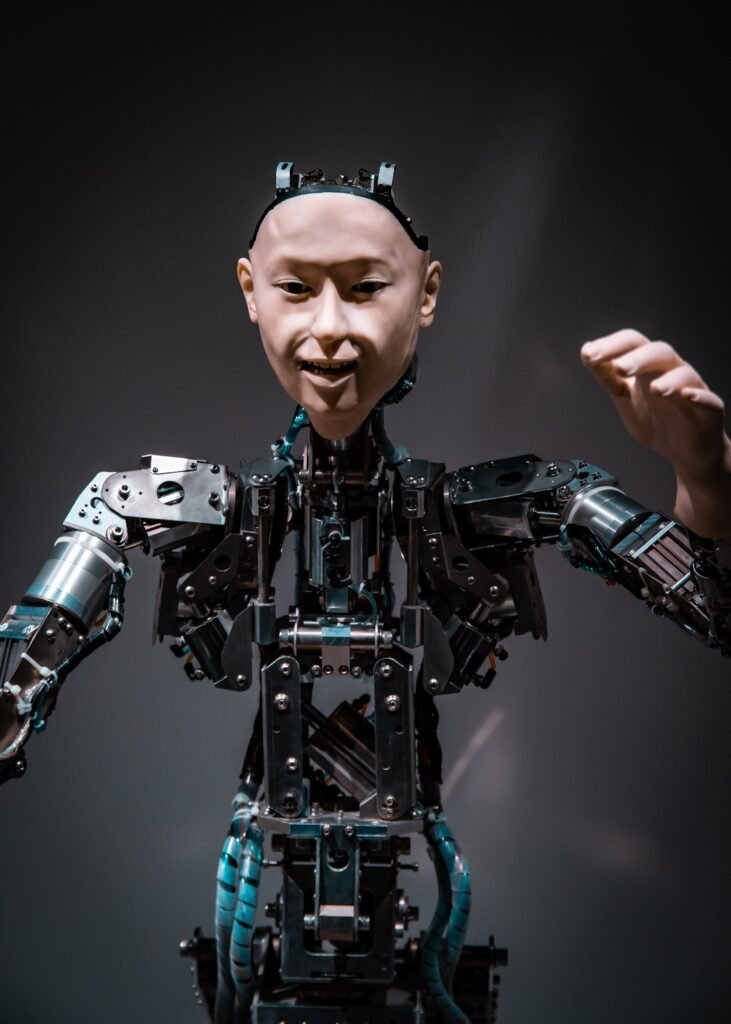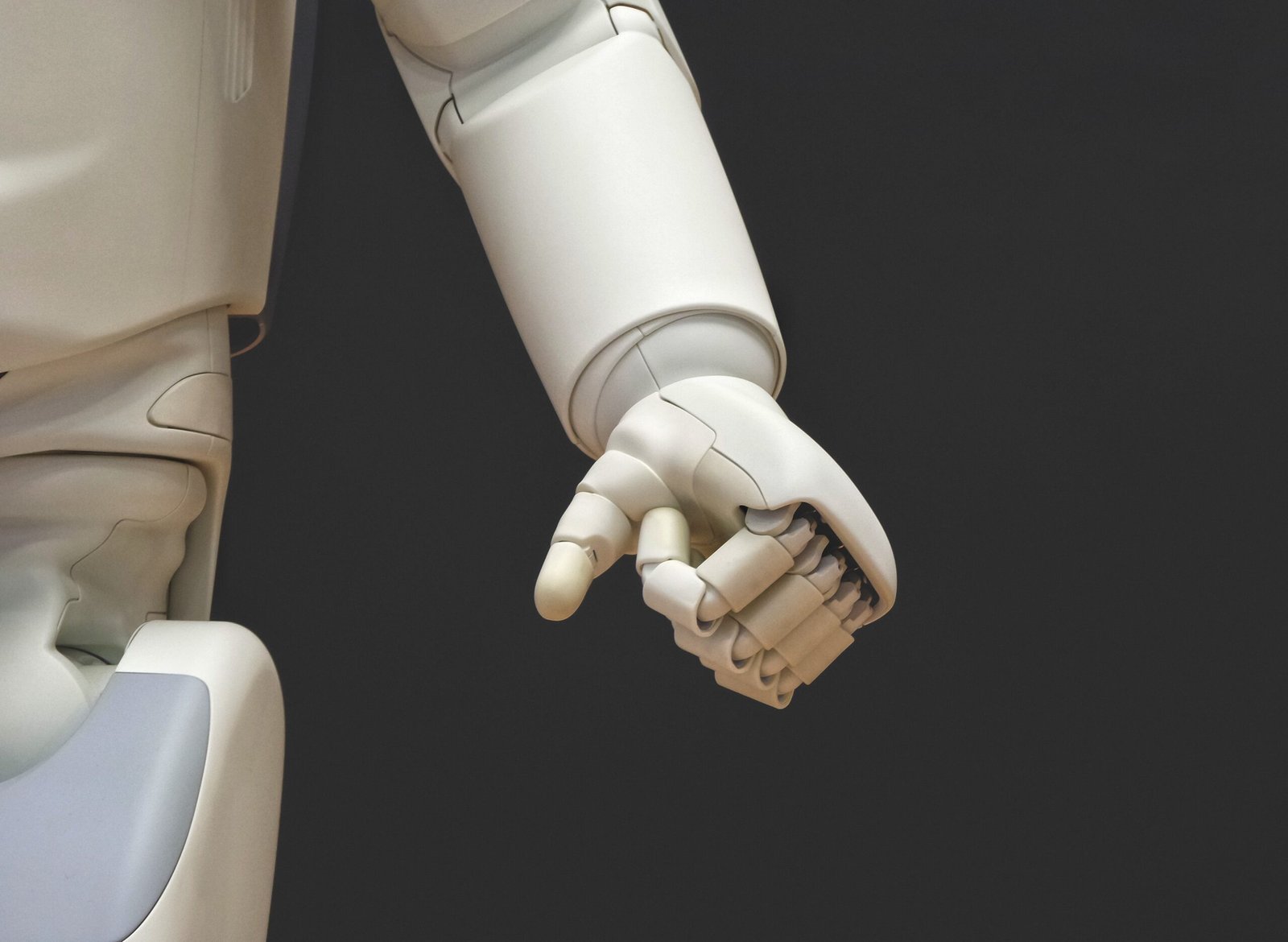Imagine a world where machines possess the ability to think, learn, and make decisions just like humans. This is not a distant dream, but rather the future that awaits us with the rapid advancements in Artificial Intelligence (AI). The implications of AI are far-reaching and can revolutionize various industries, from healthcare and transportation to finance and entertainment. However, as we embrace this technological progress, questions arise about the potential risks and ethical concerns associated with AI. In this article, we will explore the exciting possibilities and careful considerations that shape the future of artificial intelligence.
The Current State of Artificial Intelligence
Artificial Intelligence (AI) has made significant strides in recent years, transforming various industries and revolutionizing the way we live and work. AI technologies have achieved remarkable advancements, yet there are still limitations to be addressed. However, the potential for growth and expansion of AI is immense, with its integration in healthcare, transportation, finance, education, and many other sectors showing great promise.
The Achievements of AI So Far
AI has already accomplished impressive feats that were once considered science fiction. Machine learning and deep learning algorithms have excelled at tasks such as image recognition, natural language processing, and recommendation systems. Speech recognition technology has become incredibly accurate, allowing us to interact with virtual assistants and smart home devices effortlessly. AI-powered chatbots are routinely used for customer service, providing quick and accurate responses to inquiries.
The Limitations of Current AI Technology
Despite its achievements, AI still faces certain limitations. One significant limitation is the inability of AI systems to fully comprehend the complexities of human emotions and context. While AI can process vast amounts of data and provide insights, it lacks the human touch and intuition required to understand emotions accurately. Additionally, AI algorithms can be biased if trained on biased data, leading to potential ethical concerns. Further advancement in these areas is necessary to overcome these limitations.
The Growth of AI in Various Industries
AI has found applications in a wide range of industries, transforming processes, and improving efficiencies. Let’s explore some of the key sectors where AI is making a significant impact.
Advancements in Artificial Intelligence
Machine Learning and Deep Learning
Machine learning and deep learning are the driving forces behind many AI breakthroughs. Machine learning algorithms enable computers to learn from data and make predictions or decisions without being explicitly programmed. Deep learning, a subset of machine learning, utilizes artificial neural networks to simulate the human brain and analyze large datasets. This technology has propelled advancements in image and speech recognition, natural language processing, and autonomous systems.
Natural Language Processing
Natural language processing (NLP) focuses on enabling computers to understand, interpret, and generate human language. NLP algorithms have improved language translation, voice assistants, and sentiment analysis applications. Language models like GPT-3 have generated significant excitement, showcasing the potential of AI to understand and generate human-like text.
Computer Vision and Image Recognition
Computer vision enables machines to analyze, interpret, and understand visual information from images or videos. AI-powered image recognition technologies have been employed in areas like facial recognition, object detection, and self-driving cars. These advancements have tremendous potential for improving various industries, from healthcare and transportation to surveillance and security.

AI in Healthcare
Improving Disease Diagnosis and Treatment
AI has the potential to revolutionize healthcare by improving disease diagnosis and treatment. Machine learning can analyze vast amounts of patient data, including medical records, genetic information, and symptom descriptions, to identify patterns and predict diseases. This can assist medical professionals in making accurate diagnoses, facilitating early detection and timely interventions.
Assisting in Surgical Procedures
AI can assist surgeons during complex procedures by providing real-time feedback and guidance. Robotic surgery systems powered by AI and machine learning algorithms offer greater precision and enhance surgical outcomes. These systems can analyze medical images, track surgical instruments, and provide surgeons with valuable insights, leading to safer and more efficient surgeries.
Predictive Analytics for Healthcare Management
The integration of AI in healthcare management enables predictive analytics, helping healthcare providers optimize resource allocation, staff scheduling, and patient management. AI algorithms can analyze historical data to predict patient admissions, identify potential bottlenecks, and support proactive decision-making. This can lead to improved efficiency in healthcare systems, ultimately benefiting patients and medical professionals.
AI in Transportation
Self-Driving Vehicles
Self-driving vehicles are one of the most exciting applications of AI in transportation. Autonomous cars utilize AI-powered perception systems to sense and interpret the environment, making driving decisions without human intervention. These vehicles have the potential to enhance road safety, alleviate traffic congestion, and increase transportation accessibility for individuals with mobility challenges.
Traffic Management Systems
AI plays a crucial role in optimizing traffic management systems. By analyzing real-time data from cameras, sensors, and connected vehicles, transportation authorities can predict traffic patterns, optimize signal timings, and implement dynamic routing strategies. This can significantly reduce commuting time, minimize delays, and improve overall traffic flow in urban areas.
Enhanced Transportation Efficiency
AI also contributes to enhancing transportation efficiency through route optimization, demand forecasting, and predictive maintenance. AI algorithms can analyze historical transportation data and weather patterns to suggest the most efficient routes, reducing fuel consumption and emissions. Furthermore, predictive maintenance techniques leverage AI to analyze sensor data and proactively identify potential vehicle failures, ensuring safer and uninterrupted transportation services.

AI in Finance
Algorithmic Trading
AI has revolutionized financial markets through algorithmic trading. Machine learning algorithms analyze vast amounts of market data, identify patterns, and make predictions, enabling automated trading strategies. This technology has improved trading speed, accuracy, and efficiency, benefiting both individual investors and financial institutions.
Fraud Detection and Prevention
The integration of AI in finance has strengthened fraud detection and prevention mechanisms. Machine learning algorithms can analyze large volumes of transactions and identify anomalies or suspicious patterns that might indicate fraudulent activity. AI-powered fraud detection systems have significantly enhanced fraud prevention and reduced financial losses for individuals and organizations.
Personal Financial Assistant
AI-powered personal financial assistants have become increasingly common, helping individuals manage their finances more effectively. These virtual assistants can provide personalized financial advice, automate budgeting, and monitor spending habits. By leveraging AI, individuals can gain better control over their finances and make informed financial decisions.
AI in Education
Personalized Learning
AI is transforming education by enabling personalized learning experiences. Adaptive learning platforms use AI algorithms to assess individual learning styles, preferences, and knowledge gaps, tailoring educational content accordingly. This facilitates personalized instruction and maximizes learning outcomes for students, regardless of their unique learning needs.
Automated Grading
AI can streamline the grading process with automated grading systems. By leveraging AI algorithms, educational institutions can assess and grade assignments, exams, and quizzes more efficiently. Automated grading not only saves time for educators but also provides instant feedback to students, promoting continuous learning and improvement.
Virtual Teaching Assistants
AI-powered virtual teaching assistants can provide additional support to educators and students. These assistants can answer questions, provide explanations, and assist with administrative tasks. Virtual assistants enable more personalized attention in classrooms, reducing the workload on educators and enhancing the overall learning experience for students.

Ethical Concerns with AI
Job Displacement and Workforce Changes
The advent of AI has raised concerns about job displacement and changes in the workforce. As AI technology advances, certain tasks and job roles may become automated, potentially leading to unemployment in some sectors. However, this also creates opportunities for reskilling and upskilling the workforce to adapt to new roles and industries.
Bias in AI Algorithms
Another ethical concern is the potential bias in AI algorithms. AI models are trained on historical data, which can contain biases, leading to biased decisions or discriminatory outcomes. It is crucial to ensure transparency, fairness, and accountability in AI systems to mitigate the risk of perpetuating social biases.
Ethical Decision-Making by AI Systems
AI systems capable of making autonomous decisions raise ethical concerns regarding accountability and moral responsibility. As AI becomes more sophisticated, ensuring that AI systems make ethical decisions aligning with human values is essential. Striking the right balance between autonomy and human oversight is crucial to prevent unintended consequences.
Technological Challenges for AI
Computational Power and Storage
AI algorithms require substantial computational power and storage capabilities. Training complex deep learning models can be computationally intensive and necessitates high-performance hardware infrastructure. Overcoming computational limitations is crucial to enable AI systems to scale and tackle more complex problems effectively.
Data Availability and Quality
The availability of high-quality data is fundamental for AI systems to deliver accurate and reliable results. AI algorithms depend on vast amounts of data to learn and make predictions. Ensuring data privacy, accessibility, and quality remains a challenge in many industries, hindering the progress of AI applications.
Interoperability and Standardization
To promote the widespread adoption and interoperability of AI systems, standardization efforts are necessary. Establishing common frameworks, protocols, and data formats can enhance collaboration and enable AI solutions to seamlessly integrate with existing systems. Standardization will also facilitate the exchange and sharing of data, promoting innovation and advancements in AI technologies.
Coexistence of Humans and AI
Collaboration between Humans and AI
The future of AI entails a collaborative relationship between humans and machines. AI can augment human capabilities, assisting in repetitive tasks, data analysis, and decision-making. By leveraging the strengths of AI systems and human intelligence, we can achieve greater efficiency, productivity, and innovation.
AI as Tools for Human Creativity
AI technologies also have the potential to enhance human creativity. From generative art to music composition, AI can assist artists, enabling them to explore new possibilities and push the boundaries of their creativity. With AI as a creative tool, humans can unlock innovative and imaginative solutions, fostering a synergy between human ingenuity and machine intelligence.
AI Augmentation of Human Capabilities
AI has the potential to augment human capabilities in various fields. For example, in healthcare, AI can analyze vast patient data, providing healthcare professionals with valuable insights to improve patient outcomes. In education, AI-powered learning platforms can adapt to individual learning needs, fostering personalized education. The augmentation of human capabilities through AI can lead to a more efficient, productive, and fulfilling society.
Future Trends and Possibilities of AI
General Artificial Intelligence
The future holds the possibility of achieving general artificial intelligence (AGI) – AI systems capable of performing any intellectual task that a human being can do. While AGI is still a distant prospect, its potential implications are vast. AGI could revolutionize various domains, including scientific research, problem-solving, and decision-making, ushering in a new era of advancement and innovation.
AI in Space Exploration
AI is expected to play a significant role in space exploration. From autonomous spacecraft navigation to analyzing vast amounts of space data, AI-powered systems can enhance our understanding of the universe and facilitate groundbreaking discoveries. With AI assisting in mapping and navigation tasks, space exploration missions can become more precise, efficient, and successful.
The Impact of Quantum Computing on AI
The emergence of quantum computing has the potential to exponentially accelerate AI development. Quantum computers can process vast amounts of data simultaneously, leading to significant advancements in machine learning algorithms, optimization problems, and data analysis. Quantum AI systems have the potential to solve previously unsolvable problems and spark breakthroughs in various domains.
In conclusion, the current state of artificial intelligence showcases remarkable achievements and promising advancements in various industries. From healthcare to transportation, finance to education, AI is transforming processes, enhancing efficiencies, and unlocking new possibilities. While there are limitations and ethical concerns to address, the coexistence of humans and AI holds immense potential for collaboration, augmentation, and innovation. As technology continues to evolve, the future of artificial intelligence looks bright, with the possibilities of AGI, space exploration, and the impact of quantum computing on AI paving the way for exciting advancements yet to come.






